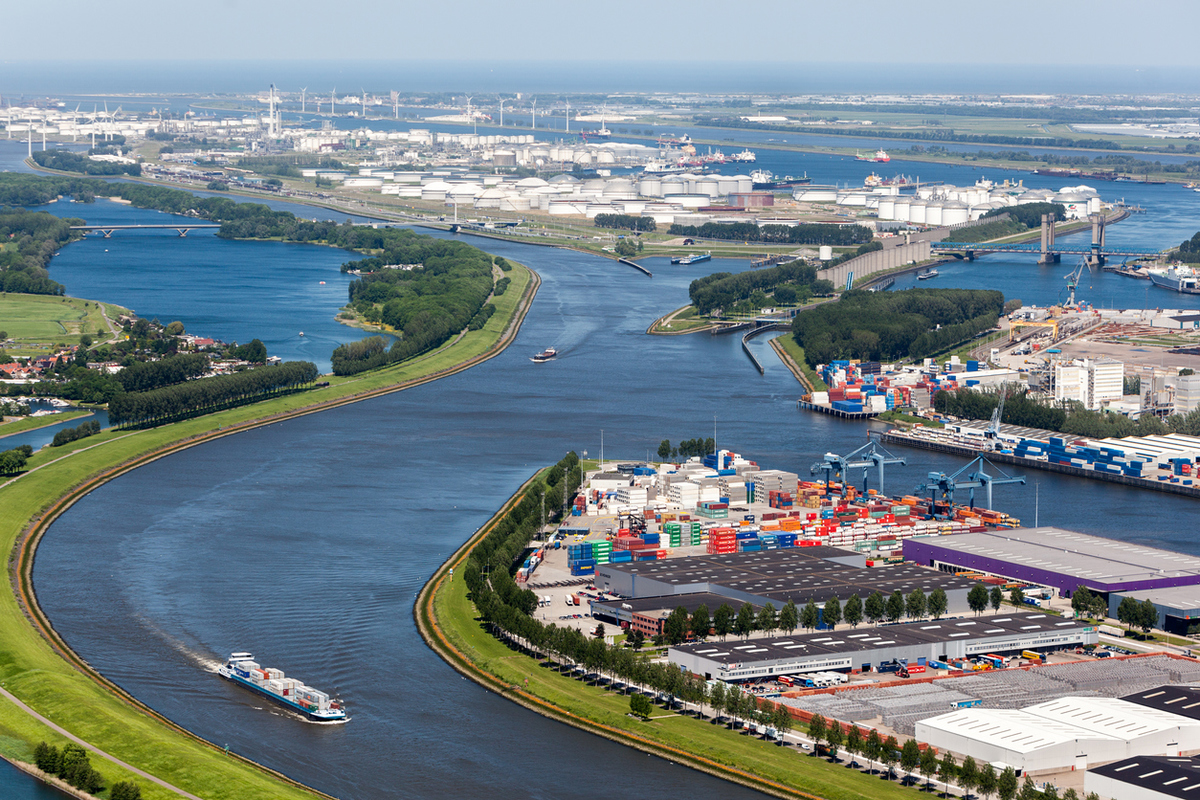Rotterdam sees a dip in oil throughput in the first half of 2023
Rotterdam’s total liquid bulk throughput was down marginally by 0.6% in the first half of the year compared to a year earlier.
 PHOTO: The Europoort area in the Port of Rotterdam. Getty Images
PHOTO: The Europoort area in the Port of Rotterdam. Getty Images
Crude oil throughput fell by 1.4% on the year, to 51.8 million mt in the first half of the year.
Crude oil “from the United States, Norway, West Africa and the Middle East” completely replaced Russian oil imports in the first half of the year, following the EU’s ban on imports of seaborne Russian crude oil from 5 December last year, and a subsequent ban on imports of refined Russian oil products from 5 February this year.
Transshipments of mineral oil products also dropped by 1.9% to 6.2 million mt in the first six months of this year.
However, LNG throughput continued to increase and rose by 9.8% on the year, to 5.9 million mt in the first half of the year. The US (62%) formed the bulk of LNG imports to Rotterdam.
Rotterdam’s bulk cargo throughput slumped by 11.7% in the first half of the year. In the same time frame, coal throughput fell but iron ore and scrap metals throughput rose.
The port authority highlighted “high inflation and downturn in economy” as primary reasons for a 5.5% decline in total cargo throughput in the first half.
Rotterdam also shared an update on progress in energy transition and digitalisation in the port. “Some seventy projects are currently progressing in various phases, and the energy transition is becoming increasingly visible,” the Port of Rotterdam Authority said.
These developments primarily include shore power, “investment decision on hydrogen pipeline, Sif plant expansion, sustainability in inland shipping sector and new agreements about imports of green hydrogen.”
The Dutch company Sif is working to expand its existing plant for monopile foundations on Maasvlakte 2. Monopile structures are used to support loads of offshore wind turbines installations.
“Over the year as a whole, we expect a minor fall in throughput volumes in response to the uncertainties caused by the current geopolitical situation and high inflation. Limited growth in the Dutch economy and recessions abroad are depressing global trade volumes and industrial production,” the port authority said.
By Tuhin Roy
Please get in touch with comments or additional info to news@engine.online





